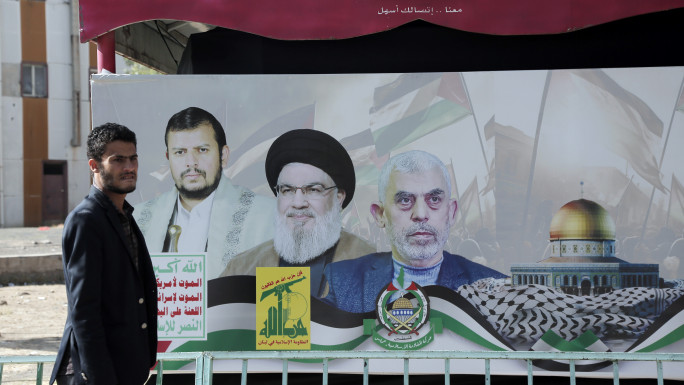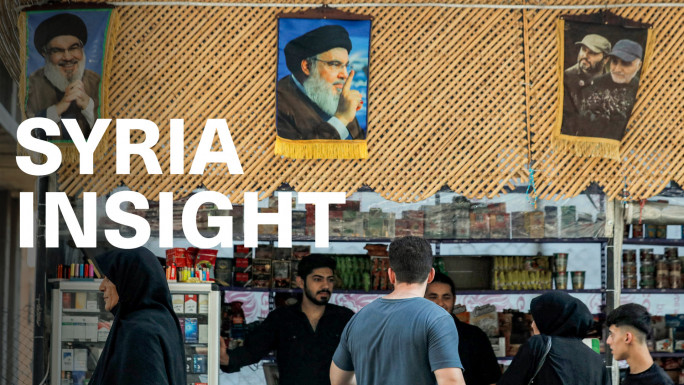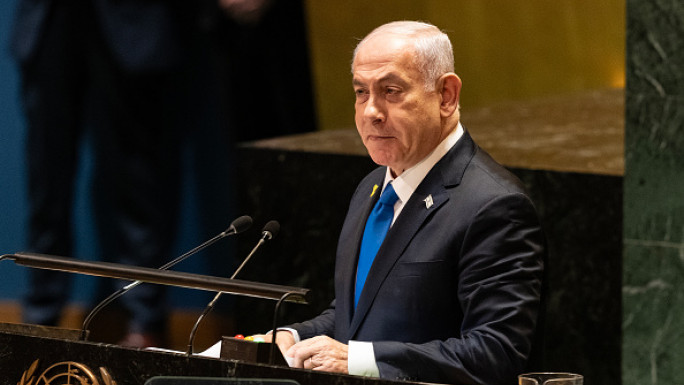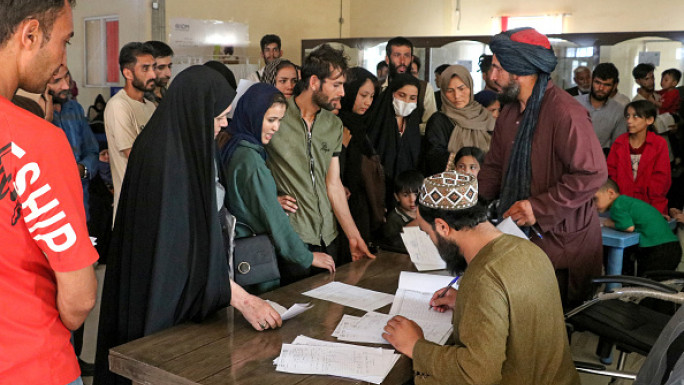Egyptian and Iranian officials meet, discuss regional tensions
Egyptian and Iranian officials held talks this week during Iranian foreign minister Abbas Araghchi's visit to Cairo, with political and security issues and regional tensions topping the agenda.
According to The New Arab’s Arabic language sister site , Al-Araby Al-Jadeed, some of the key issues discussed included Israel's war on Gaza and Lebanon and tensions in the Red Sea as well as the prospect of restoring relations between Cairo and Tehran.
The talks were described overall as being "positive", but with no specific agreements or decisions made during Araghchi’s visit to Cairo on Thursday.
Egyptian officials reportedly focused on navigation security in the Red Sea as they believe the Houthi attacks on Red Sea shipping vessels in solidarity with Gaza are "controlled" by Iran.
The officials raised concerns over the attacks, which they said have caused harm to Egypt’s economic interests, particularly income from the Suez Canal.
Al-Araby Al-Jadeed reported that Iranian officials stressed “the necessity of finding a solution to the crisis in the Gaza Strip and Lebanon” as well as a ceasefire.
The Iranian officials reiterated that "Tehran is prepared to exert all efforts to calm the situation, if the Israeli occupation and the USA commit to reducing escalations".
Egyptian officials reportedly promised to convey the sentiment to Washington.
All that was agreed between the two parties, reports said, was that there would be joint security, intelligence and diplomatic efforts on both sides in order to restore ties between the two countries.
President Abdel Fattah Al-Sisi issued a statement following the meeting, noting that the Egyptian position is that they do not want the conflict to expand, urging for an end to escalations and an all out regional war.
The statement also noted that an all-out war would have dangerous consequences on security and capabilities of all countries in the region.
Dr. Hassan Nafaa, a professor of political science at Cairo University, told Al-Araby Al-Jadeed: "Iran wants to improve its relationship with Egypt, which is still hesitant on its part. However, I doubt that the subject of the visit is an agreement on exchanging ambassadors.
"I think it is related to regional tensions, the expected Israeli strike on Iran, and the warning of Arab countries against providing any facilities to Israel. However, Egypt does not have enough weight to convince Israel not to strike Iran".
Hakam Amhaz, an expert in regional and international affairs, told Al-Araby Al-Jadeed, "Iran is not asking for mediation from Egypt or anyone else regarding the expected Israeli strike in response to the Iranian attack.
"Rather, what Tehran is doing through its diplomacy is explaining the situation to the world, explaining its negative results and the repercussions and implications of any Israeli strike on Iran in the coming period…"
Earlier this week, Biden said has a good idea of when and how Israel is set to respond to Iran’s recent missile attack but declined to share details on what the Israeli response may entail.






![Families mourn relatives killed in al-Maghazi [Getty]](/sites/default/files/styles/image_212x120/public/2178516921.jpeg?h=b9615360&itok=WEPrrQpc)
![Jabalia ambulance carrying killed Palestinian [Getty]](/sites/default/files/styles/image_212x120/public/2178576207.jpeg?h=a5f2f23a&itok=uNQTe09j)
![The Rukban camp has been besieged by the Syrian regime since 2018 [Getty]](/sites/default/files/styles/image_330x185/public/2024-10/GettyImages-1043955680.jpg?h=a31d927f&itok=YSCCjZeb)